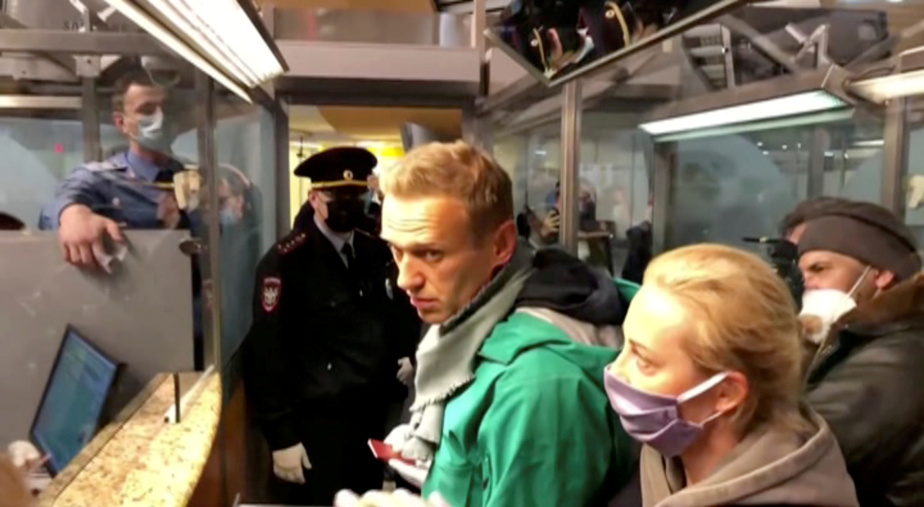
(Geneva) More than 40 countries criticized Russia on Friday in front of the United Nations Human Rights Council in Geneva (Switzerland) for the treatment it received against the Kremlin’s main opponent, Alexei Navalny, and his supporters.
In this joint declaration – an unprecedented measure against Russia – the 45 signatories denounced the “deteriorating situation of human rights and fundamental freedoms” which is particularly evident “through unlawful detention, arrest and death.” Prison of Mr. Alexei Navalny “.
They call for his “immediate and unconditional release,” as well as the release of “all those who were unlawfully and arbitrarily detained.”
Alexei Navalny, 44, returned to Russia in January after a period of convalescence in Germany after being poisoned and blamed by Russian President Vladimir Putin.
He was arrested on arrival and is now facing his first long prison sentence in nearly a decade of feuds with authorities.

Reuters TV archive photos, Reuters
Alexei Navalny was arrested at Moscow’s Sheremetyevo Airport on January 17.
The signatories to the text, including France, the United States and Canada, regret that poisoning Mr. Navalny – with a Novichok type nerve gas, designed in Soviet times, according to three European laboratories – was not a topic. A genuine investigation is underway and considers that the actions of the Russian authorities and justice are “unacceptable and politically motivated.”
The defendant said, “They are inconsistent with Russia’s international obligations to respect human rights, including the right to liberty and security of person and the right to a fair trial.” Polish Ambassador to Geneva, Zbigniew Cech, on behalf of the group.
“We are particularly concerned about some recent legislative amendments and constitutional changes that further restrict rights and freedoms,” he added.
He said that the signatory countries are concerned about “the large number of arbitrary arrests of demonstrators who expressed their support for Mr. Navalny in several Russian cities.”
The Polish ambassador warned that “all the events related to the arrest and imprisonment of Mr. Navalny, as well as the suppression of his allies and supporters, are tangible evidence of the shrinking space of civil society” in Russia.
He said that such actions are “tools of the state to attack independent media and civil society and silence dissenting voices.”
“This declaration is as historic as the repression in Russia,” said John Fischer, head of the Geneva-based NGO Human Rights Watch.
“The Russian authorities have imprisoned a leading figure in the opposition and issued a series of new repressive laws aimed at demonizing and punishing critical voices,” he said, calling on the Human Rights Council to “work to end repression” in the country.
